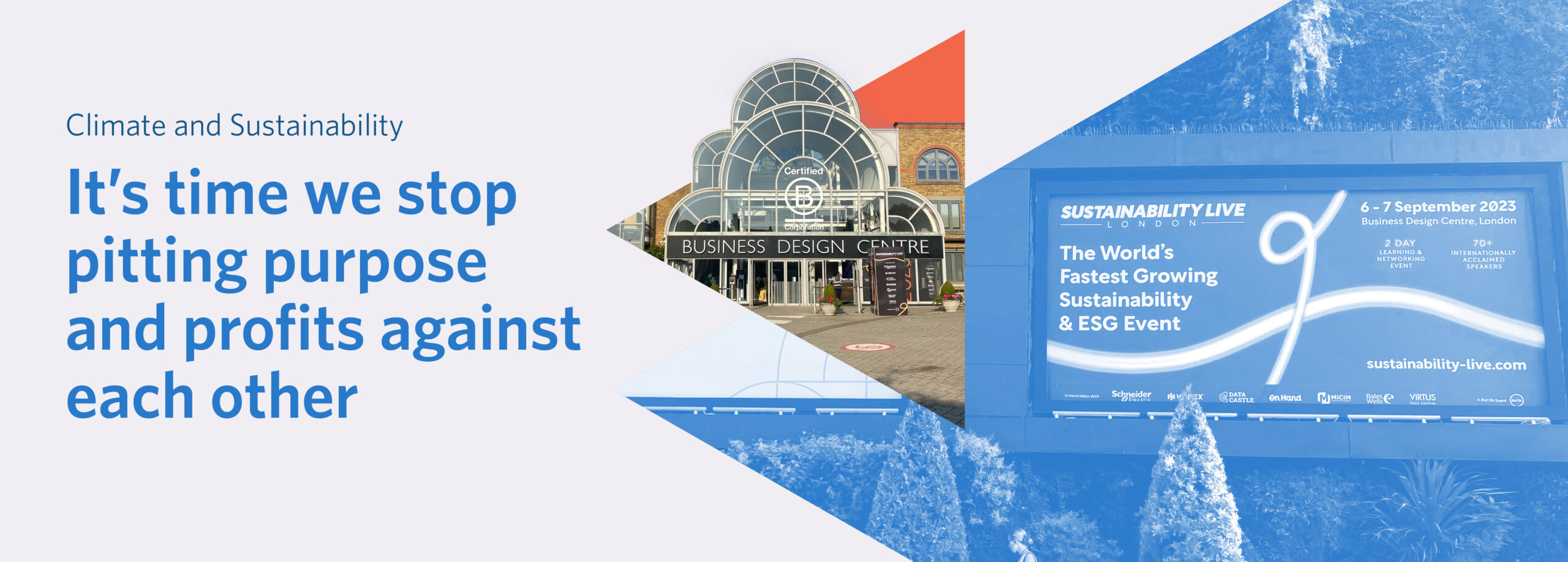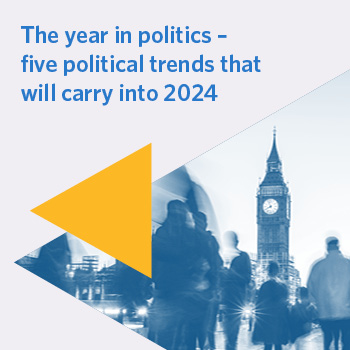
Last week, FleishmanHillard’s Climate & Sustainability unit treated themselves to two days out at Sustainability LIVE, London. The event was a refreshing breath of optimism, determination (and sunshine!), a marked shift away from the doom and gloom we too often see in headlines – particularly for climate and sustainability news.
The sustainability and ESG event was also a powerful reminder of the job to be done to drive meaningful sustainable change and importantly, of the influence we have within our own sphere – communications – to ensure businesses deliver.
As we look forward with our clients and edge closer towards a COP under the spotlight, we took away three key lessons all organisations can learn from:
Make sustainability everybody’s business. A common theme throughout the conference was the need to infuse sustainability across a business at every level, in every action. Ultimately, sustainable business value makes smart business sense. It’s the key to future-proofing, whatever your field, whatever your model. In order to deliver the progress we so desperately need, businesses have to stop thinking of isolated sustainability strategies and ensure they have a sustainable business strategy. Period.
Moving away from specific CSR approaches, to approaches where sustainability is a part of core business strategy and can deliver clear competitive advantage and business futureproofing. That comes with a lot of work – embracing ESG is not easy – which means the most effective way to deliver it is to integrate ESG into BAU decision making processes. This means making space for sustainability within an employer value proposition (EVP), and making it clear to all employees how it relates to their day-to-day roles, their remuneration and their progression: creating a compelling narrative that everyone can believe in and feel incentivised to act on.
Regulators are stepping up. One topic clearly on the minds and agendas of the C-suite presenters at the conference was the implications of the Corporate Sustainability Reporting Directive (CSRD). The CSRD is part of the European Green Deal and it strengthens the rules concerning the social and environmental information that companies have to report. It’s aimed at large companies and listed SMEs and is expected to impact approximately 50,000 businesses. The first companies will have to apply the new rules for the first time in 2024 for reports published in 2025. Like financial reporting standards, it’s designed to increase the accuracy, consistency, and comparability of corporate sustainability reporting. The new reporting regulations will make it imperative for companies to back up their sustainability claims with tangible actions and data to show their progress. Tech companies and accountancy firms will be in demand to ensure companies can meet the requirements.
A business case you can’t argue with. This is all in a context where the Chief Communications Officer is steadily appearing in more and more C-Suites. And rightly so. Business is waking up to the difference between ‘fine’ and ‘good’ communications when it comes to building an authentic reputation, resilient for the future. From defining environmental impact to evaluating and navigating the risk coming from ever-increasing climate changes, communications is so much more than what is said. It’s a two-way dialogue – listening, and understanding, before talking. Smart climate counsel should be no different, and by giving communications a seat at the table, the function is better able to inform decision-making and shape impact, as well as define it.
If you’re ready to move away from the unhelpful cycle of reactive climate communications and start turning ambition into action, get in touch. For more information on FleishmanHillard’s Climate & Sustainability Unit and how we can help, click here: https://fleishmanhillard.co.uk/expertise/climate-and-sustainability/
Imogen Sackey, Tracey Nugent, Carly Hilkin, Climate & Sustainability Unit
Find Out More
-
Platinum CMS Award
March 13, 2024
-
Changing Communications Tack at Mobile World Congress
February 21, 2024


